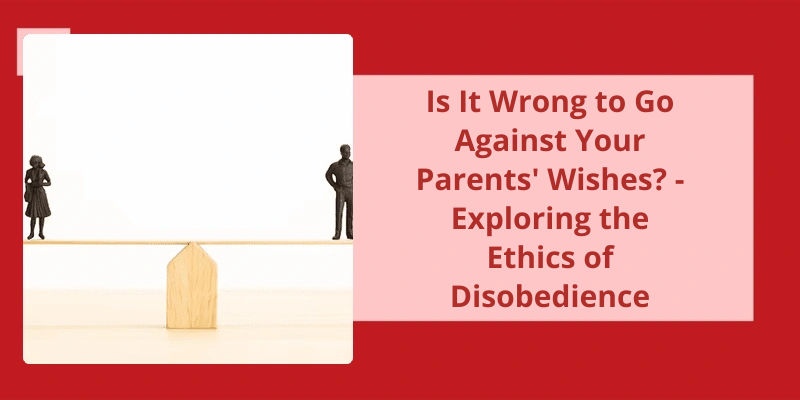Throughout human history, people have had a natural tendency to gravitate toward certain individuals or groups. This preference or inclination is often referred to as favoritism. This phenomenon can manifest in many different ways, from a teacher giving extra attention to a gifted student to a boss promoting a favored employee over someone who may be better suited for the job. While favoritism can sometimes be harmless, it can also be detrimental when it leads to unfair treatment or discrimination. Synonyms for favoritism include partiality, preference, and favor.
What Is the Act of Favouring Someone?
It’s a dishonest practice that can be harmful to organizations, leading to resentment among employees who don’t receive similar special treatment. In some cases, favoritism can even lead to legal issues like discrimination and wrongful termination.
Favoritism can take many forms, including nepotism, where family members or close friends are given preferential treatment, or cronyism, where colleagues or business associates are favored. It’s not always intentional, but it can be damaging nonetheless. People who feel that they’re being passed over for opportunities or promotions may become disengaged from their work, leading to decreased productivity and morale.
To combat favoritism, many companies have instituted policies to ensure that all employees are treated fairly and equally. This can include standardized hiring and promotion practices, equal pay for equal work, and accountability and transparency in decision-making processes. Managers are encouraged to be aware of their own biases and to make decisions based on objective criteria rather than personal feelings.
While favoritism may be tempting in the short term, it ultimately undermines the integrity of organizations, leading to decreased trust and loyalty. By prioritizing fairness and impartiality, companies can foster a culture of respect, cooperation, and excellence. Though it may require some effort, avoiding favoritism is ultimately in the best interest of businesses and their employees.
In daily conversation, we often use different words to convey the meaning of favor. It can mean liking, showing kindness, seeking approval, or indulging someone’s wishes. On the other hand, words like disfavor, bias, and opposition indicate a lack of support or preference. Understanding the nuances of favor-related words can help us communicate effectively and build healthy relationships with others. Let’s explore some similar and opposite words of favor from Oxford Languages.
What Is a Word That Means Favor Someone?
The English language is full of words that describe the act of favoring someone. One such word is “approval,” which means showing support or liking for someone or something. Similar words to “approval” include approbation, commendation, esteem, and kindness, all of which convey a sense of admiration or positive regard for someone.
Opposite words to “approval” would be “disfavor” or “disapproval.”. These words denote a negative feeling towards someone or something, and can be seen as the opposite of giving preference or support. Other opposite words include overgenerous, which implies giving too much, and preferential treatment, which refers to giving unfair advantages.
Another word that describes favoring someone is “token,” which is a thing such as a badge or knot of ribbons that’s given or worn as a mark of liking or support. Similar words to “token” include ribbon, rosette, badge, and souvenir, all of which suggest a physical item that represents feelings of admiration or appreciation.
When it comes to verbs that mean to favor someone, “advocate” is a powerful word that conveys a sense of actively supporting or backing someone. Similar verbs include recommend, advise, and subscribe to, all of which suggest giving preference to someone or something over others. Opposite verbs would be to oppose or work against someone, giving them less preference or support.
Another way to show favoritism towards someone is to “indulge” or “pamper” them, both of which suggest going beyond what’s expected to please or accommodate the person. Similar verbs include accommodating, gratifying, and satisfying, all of which suggest putting the other persons desires or needs above ones own.
Lastly, in a more literal sense, one can “resemble” or “take after” someone, conveying a sense of favoring them in appearance or personality. Similar words include looking like, being similar to, bearing a resemblance to, and reminding one of someone. Opposite words would be to differ from someone, suggesting less similarity or favorability.
The Impact of Favoritism and How It Can Affect Relationships.
Favoritism is the act of showing preference for one person over another. It can create tension, resentment, and a lack of trust in relationships. When one person is consistently favored, it can cause others to feel inferior and undervalued. This can damage both personal and professional relationships, leading to a toxic environment. It’s important to recognize and address favoritism to ensure equal treatment and positive interactions with others.
Now that we’ve a clear understanding of the meaning of nepotism, it’s important to recognize how it can manifest in various aspects of society, particularly in political settings. As mentioned earlier, this can take the form of favoritism towards relatives or close associates, which ultimately undermines merit-based advancement and can lead to conflicts of interest. Let’s explore this phenomenon in more detail and it’s potential impacts on the political landscape.
What Is the Word for Favoritism to a Relative?
Favoritism, as a practice, isn’t uncommon in various aspects of life. In some cases, it’s even considered a norm or a cultural tradition. However, when such actions become systematic and are practiced by people with power, it can lead to inequality, corruption, and even oppression. In the context of professional dealings such as hiring and promotions, favoritism can significantly affect the quality and fairness of the outcome, as well as the morale of those who’re less privileged.
One specific form of favoritism is nepotism. Nepotism often happens when someone in power favors members of their own family or relatives over others in matters such as employment, housing, and scholarships. Commonly, this occurs in smaller organizations and family-owned businesses, but it can also happen in larger organizations and governments, especially in developing countries.
While the word “nepotism” originates from Italian, it isn’t exclusive to Italy. In fact, nepotism has been observed in various parts of the world and has been criticized for it’s negative effects on social justice and fair opportunities. It’s particularly concerning when nepotism happens in the public sector, where the government should act in the best interest of all it’s citizens, not just a select few.
Another related concept is cronyism, which refers to showing favoritism to ones close friends or associates. This is often seen in business or political contexts, where someone in a position of power might unfairly award lucrative contracts or special privileges to their friends or associates. Like nepotism, cronyism can lead to corruption and unfairness, which can have harmful effects on a societys economic and social well-being.
In some cases, nepotism and cronyism may be concealed or justified by merit-based criteria or qualifications. However, this doesn’t change the fundamental problem of favoritism to a select few. The presence of nepotism and cronyism often erode the trust between the people and the government, and damage the credibility of institutions that promote fairness and impartiality.
Source: Favoritism, Cronyism, and Nepotism – Santa Clara University
Understanding the nuances between favouritism and cronyism is important in recognizing and combating unfair practices in various settings, including in the workplace and in politics. While they share similar characteristics, the subtle distinctions between the two concepts reveal the types of relationships that exist and the potential harmful effects they may have on those outside of the favored group.
What Is the Difference Between Favouritism and Cronyism?
Both favouritism and cronyism can have negative effects on individuals and organizations. When individuals are given preferential treatment based on their group membership or personal relationships, it can lead to feelings of resentment and decreased motivation among those who aren’t receiving the same benefits. It can also lead to less diversity and innovation, as individuals who aren’t part of the favored group may be less likely to speak up or share their ideas.
In some cases, an individual may show preferential treatment to someone simply because they’re friends, without any intention of benefiting that person in a business or political context.
This can include implementing clear evaluation criteria and processes, encouraging diverse perspectives and ideas, and promoting transparency and accountability. By working towards these goals, individuals and organizations can help to foster a culture of fairness, respect, and innovation.
It’s always important to treat others with kindness and respect, but sometimes we may find ourselves using the same words and phrases repeatedly. To add some variety to our vocabulary, it can be helpful to explore different synonyms that convey a similar meaning but with a new twist. For example, if you’re looking for a synonym for “favor others,” there are several options, such as aid, assistance, backing, or benefit. Let’s take a closer look at each of these alternatives to see how they might be used in different contexts.
What Is a Synonym for Favor Others?
In the realm of interpersonal relations, expressions of favor are commonly associated with various forms of support, kindness, and preference towards others. However, what happens when the idea of favor extends beyond the simple act of doing something nice for someone else? When it comes to synonyms for favor others, understanding the different ways in which this phrase can be interpreted is crucial.
One possible synonym for favor others could be aid. This term implies a sense of active engagement in supporting someone in need, whether it be through practical help or emotional support. When one chooses to aid another person, it can be seen as an intentional and ongoing commitment to that individuals well-being. In some cases, aid can even extend beyond the individual to include whole communities or groups of people.
This term suggests a more immediate, short-term form of help that’s often focused on addressing a specific need or problem. Assistance may involve providing resources, advice, or expertise to someone in a particular situation. Unlike aid, which often implies a long-term commitment, assistance is typically offered for a discrete period of time.
Backing is yet another possible synonym for favor others. This term refers to the act of supporting or endorsing someone, whether it be a person or an idea. Backing is often associated with powerful figures or entities that have the ability to sway public opinion or influence decision-making processes. Offering backing to another person can be a powerful show of support, as it demonstrates a willingness to stand up for someones beliefs or ideas.
Benefit is a synonym for favor others that takes a more indirect approach. This term suggests that by showing favor or support towards someone, one is indirectly benefiting oneself. For example, offering support to a colleague at work may result in improved relationships and increased productivity in the workplace. Alternatively, backing a particular political candidate may result in tangible benefits that align with ones own personal beliefs or interests.
Conclusion
It can have a significant impact on one's personal and professional life, affecting their growth trajectory, confidence and overall well-being. Though we all are capable of favoring someone, it's important to recognize and address such tendencies, to prevent it from becoming a toxic habit. It's crucial that we foster a culture of inclusivity and meritocracy where everyone has an equal opportunity to succeed based on their skills and abilities rather than their personal connections or background. Only then can we truly embrace diversity and create an empowering environment for everyone.






